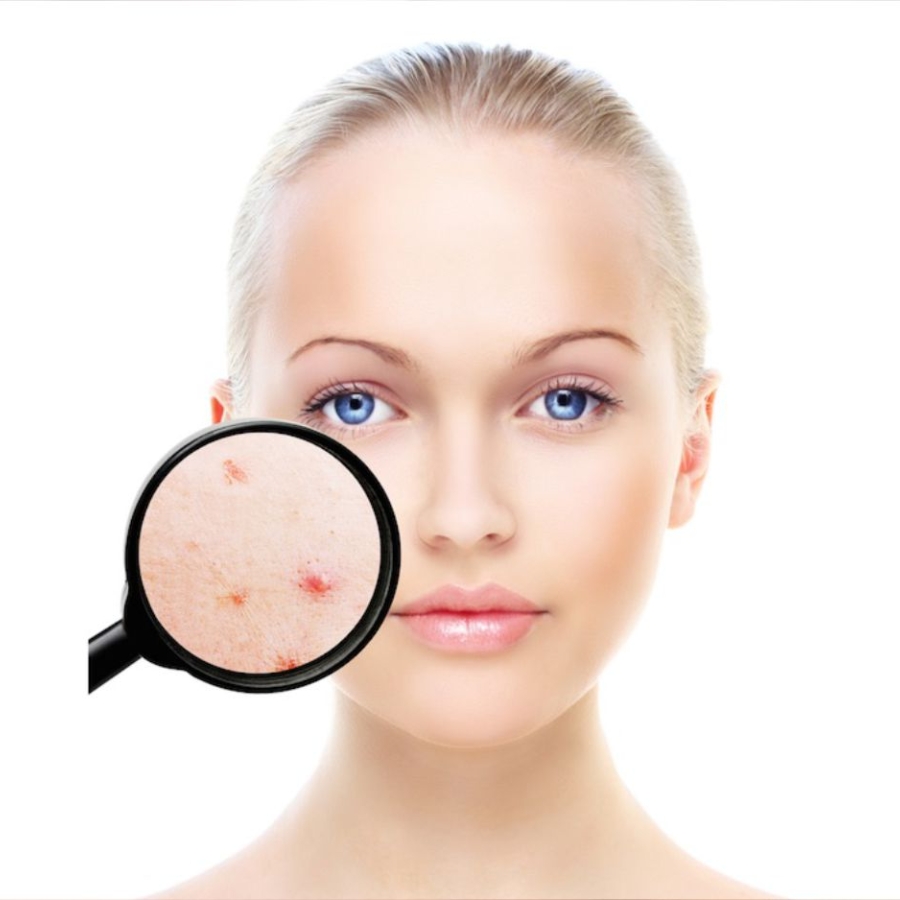Acne (or pimples, black heads, white heads) are the bane of any teenager’s life. Around three-quarters of 11 to 30 year-olds will get acne at some time. You see them first thing in the morning in the mirror. They are a point of ridicule by friends, family and even strangers. And it lowers one’s self confidence to a great extent. You find it difficult to face your friends and relatives and also attend social functions.
I believe acne is a part of growing up and maturation that is natural for everyone. They are usually considered a sign of onset of puberty which involves hormonal changes. This leads to changes in the activity of oil glands which is often the precursor to acne.

Having Acne! Does it mean not being clean?
Acne is a skin condition that involves the oil glands of the skin. Skin has pores (tiny holes) which connect to oil glands located under the skin. The glands are connected to the pores via follicles – small canals. Sebum, an oily liquid, is produced by these glands. The sebum carries dead skin cells through the follicles to the surface of your skin. Pimples grow when these follicles get blocked. These are termed as blackheads and white heads as per their appearance. In time, these oil glands with a blocked opening get inflamed and burst within the skin causing red and pus filled spots. This process is aided by bacteria called Propionibacterium acnes.
Washing the face multiple times does help in clearing the dust and grime that settles on the skin during the day. A deep cleansing face wash will help in unblocking pores as well as preventing further formation of acne.
What are the Risk factors for acne?
It has been found that oil based make ups, greasy hair, hot and humid climate, faulty diet, anxiety, stress and menstrual cycle have been related to causation of acne.
What kind of diet should be followed by a person suffering with Acne?
It has been found in studies across the world that Acne are more common in individuals who have a sweet tooth ie. Persons who eat lots of sweets, chocolates etc. However, it does not mean that acne do not occur in a person who does not eat sweets. There are no studies to date that show an oily diet or cheese will increase acne. Often youngsters with acne wonder why drinking tons of water during the day is not helping them get over Acne. Good quantities of water consumption can work to cleanse the system only to a certain extent, beyond which it becomes ineffective. This only strengthens the argument that acne is not caused by impurities in the blood. (I hope this explains why certain natural remedies which claim to clean blood impurities have not cleared Acne).
At Dr. Sunil Mishra’s Clinic, we advise eating a healthy balanced meal at regular times every day. The healthy balanced meal includes good amount of proteins, vitamins and minerals. This reduces the load of hormonal stresses on the body which is known to increase acne. Sleeping at regular hours with a sleep time of 6-8 hours every night helps tremendously in preventing acne. Daily exercise increases blood supply to the face which helps in clearing the bacteria from skin.
What are the different varieties of acne?
- Whiteheads and black heads
- Papules which are small pink bumps visible on surface of the skin.
- Pustules which are red at the base and have pus on the top and are clearly visible on the surface of the skin.
- Nodules which are large solid pimples and are painful too.
- Cysts are painful, and are filled with pus. Cysts can easily cause scars.
Do Antibiotics have a role in treatment of Acne?
We know very well the role of Bacteria called Propionibacterium acnes in causing Acne. This can be easily controlled with a long course of a low dose antibiotic which the dermatologist can suggest depending on the severity.
The trick to preventing Acne from progressing is to take long courses of antibiotics rather than stopping them after 2 weeks.
Most cases of Acne subside with antibiotic creams and gels along with other skin care tips.
How do you prevent scars on the face after Acne?
It is very important that the face is not touched at any time other than for washing and application of treatments. This reduces the transfer of bacteria from hands onto the facial skin. The Acne should never be picked or squeezed to take the dirt or pus out. This drives the infection deeper into the skin which leads to much severe scarring.
The best way to prevent scars on face is to treat Acne early on with the right and effective medications from the dermatologist at the Clinic. Do not waste time in trying out natural and homeopathic medications that have no studies to show that they work for Acne. Infact this is one of the most common reason for having severe acne.
Is there a permanent cure for Acne?
For the last 2 decades we have a very effective medication called Isotretinoin, a Vitamin A precursor, which has been time and again shown to completely abolish the tendency to get Acne in youngsters. It has to be taken for a course of 4 months at full dose to have long term benefits. Dr. Sunil Mishra is well versed with this medication and has used it for many of his patients with successful outcome. It has been found to be most effective in the severest of cases.

